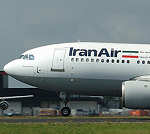 Yesterday the Bureau of Industry and Security (“BIS”) released a Settlement Agreement it had entered into with Selex Sistemi Integrati, Inc. According to the charging papers, Selex had exported an instrument landing system classified under ECCN 7A994 and then re-exported it without a license to Iran. The export and re-export in question occurred in November 2002. Selex agreed to a fine of $12,300. The violation was not voluntarily disclosed by Selex to BIS.
Yesterday the Bureau of Industry and Security (“BIS”) released a Settlement Agreement it had entered into with Selex Sistemi Integrati, Inc. According to the charging papers, Selex had exported an instrument landing system classified under ECCN 7A994 and then re-exported it without a license to Iran. The export and re-export in question occurred in November 2002. Selex agreed to a fine of $12,300. The violation was not voluntarily disclosed by Selex to BIS.
Interestingly, this is the first reported enforcement action commenced after the effective date of Public Law 110-96 which increased the penalties for export violations (under the International Emergency Economic Powers Act, or “IEEPA”) to the greater of $250,000 or twice the value of the transaction. Amended section 206(b) states that the higher penalty is applicable in any enforcement action which is “pending or commenced on or after the date of the enactment of this Act.” Because of BIS’s annoying habit of not dating much of its correspondence, it is impossible in this case to tell from the documents posted whether the enforcement action was commenced after after October 16, 2007, the date of enactment. Assuming, however, that this was the case, the $250,000 penalty would be, under the terms of the amendment, retroactively applicable.
In that light, the $12,600 fine is relatively low. There are several possible explanations for this. I do not think that one explanation was any concern about the legality of increasing the civil penalty retroactively. The black letter law is that the constitutional provision against ex post facto laws applies to criminal penalties but not to civil penalties. See Collins v. Youngblood, 497 U.S. 37 (1990). Granted there is some support for the proposition that a civil penalty that is essentially punitive and not remedial might be covered under the ex post facto clause. But it can’t be easily concluded that IEEPA’s $250,000 penalty is essentially punitive rather than remedial, although that might well be the case.
Another, and more likely possibility, is that the item exported, an instrument landing system, is a key component of aviation safety. The Iranian sanctions have been severely criticized for their detrimental impact on aviation safety and have been argued to have played a role in a recent civilian air disaster in Iran.
Finally, and probably the most likely possibility, is that the increase in maximum penalty available has not altered BIS’s perception of what a fair settlement is in a particular case. With most penalties in the past being in the five-figure range and only the rare penalty in the six- or seven-figure range, it may well be that BIS is not inclined to ratchet up penalties in the average case just because of the IEEPA amendment, but will reserve the maximum penalty for the most egregious cases.
 Permalink
Permalink
Copyright © 2008 Clif Burns. All Rights Reserved.
(No republication, syndication or use permitted without my consent.)

 Posted by
Posted by  Category:
Category: 

